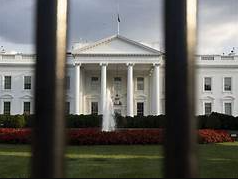Keir Starmer’s team has invested time in wooing the Republicans and the Democrats – and there is cause for concern in both US parties’ platforms.
Joe Biden has finally stepped down from his campaign for a second term and endorsed his vice president, Kamala Harris. This withdrawal marks a turning point for the Democratic Party, with Harris now preparing for a charm offensive aimed at securing the votes of delegates at the upcoming national convention. The political landscape has dramatically shifted, and the party must move swiftly to consolidate its base.
Biden’s decision comes at a time of political turmoil, with Donald Trump gaining momentum following a failed assassination attempt. Despite the challenges of managing his public image amid rumors about his cognitive decline, Biden’s withdrawal has brought a sense of finality. For many, his leadership never fully recovered from earlier political missteps, leading to doubts about his ability to continue leading through a second term.
Meanwhile, the Democratic Party now faces the daunting task of unifying under Harris’s leadership, which is no small feat. The split between the establishment wing and progressive factions of the party has been a point of contention for years, and many wonder how Harris will navigate these divides. With Trump enjoying a surge in popularity, the Democrats cannot afford to falter in the lead-up to the 2024 elections.
Across the Atlantic, Keir Starmer’s Labour Party is taking cautious steps as it monitors the unfolding political drama in the US. Labour’s strategy has involved reaching out to both Republicans and Democrats, trying to position itself in a way that could potentially benefit from whatever direction US politics takes in the coming months. However, there are real concerns about the long-term implications of both US parties’ platforms for global politics.
Starmer’s Labour has, for the most part, avoided taking a clear stance on the chaotic US election cycle. With Biden’s withdrawal and the potential for Harris to lead, Labour’s pragmatism may have been the right approach. The uncertainties surrounding both US political figures, from Biden’s age to Harris’s untested leadership, have put many on edge, especially in the context of a rapidly changing world order.
As the situation unfolds, it is clear that the Labour Party will continue to observe closely. The global repercussions of the US election results are immense, and Starmer’s team knows that the political tides could shift in unpredictable ways. Both US political powerhouses, the Republicans and the Democrats, are grappling with their own internal divisions and challenges, leaving room for Labour to carefully assess and adjust its approach as needed.
In the end, both parties must navigate the complexities of their respective political landscapes as the 2024 elections approach. With Biden’s departure and Harris’s rise to prominence, the question of what comes next for the Democrats—and how that will influence global politics—remains a critical issue for everyone, including Labour’s cautious leadership.

